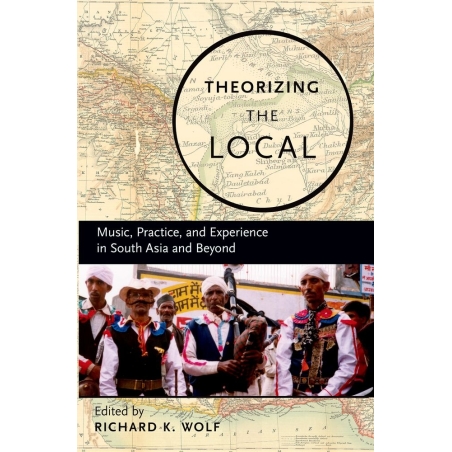Theorizing the Local rethinks South Asian music in light of diverse regional practices. Using comparative microstudies to cross the traditional borders of scholarship on Nepal, India, Sri Lanka, Pakistan, and Iran, the book provides new footing for South Asia in the study of today's musical world. As a whole, it privileges local over global as an analytical concept, serving as a model for future ethnographic study across all regions.
CONTENTS
Acknowledgments
Table of Contents
Note on Transliteration
List of Maps
Chapter One Introduction (Richard K. Wolf)
Part I: Bodies and Instruments
Chapter Two Women and Kandyan dance: Negotiating gender and tradition in Sri Lanka (Susan A. Reed)
Chapter Three Listening to the violin in South Indian classical music (Amanda Weidman)
Chapter Four Local practice, global network: the guitar in India as a case study (Martin Clayton)
Part II: Spaces and Itineraries
Chapter Five Constructing the local: Migration and cultural geography in the Indian brass band trade (Gregory Booth)
Chapter Six The princess of the musicians: R?ni Bh?niy?oi and the M?ngani?r of Western Rajasthan (Shubha Chaudhuri)
Chapter Seven Music in Urban Space: Newar Buddhist processional music in the Kathmandu Valley (Gert-Matthias Wegner)
Part III: Learning and Transmission
Chapter Eight Disciple And preceptor/performer in Kerala (Rolf Groesbeck)
Chapter Nine S?na ba s?na or from father to son: Writing the culture of discipleship (egula Burckhardt Qureshi)
Chapter Ten Handmade in Nepal (David Henderson)
Part IV: Theorizing Social Action
Chapter Eleven Modes of theorizing in Iranian Khorasan (Stephen Blum)
Chapter Twelve Zahirok: The musical base of Baloch minstrelsy (Sabir Badalkhan)
Chapter Thirteen Varoams and vocalizations: The special status of some musical beginnings (Richard K. Wolf)
Glossary
Bibliography




